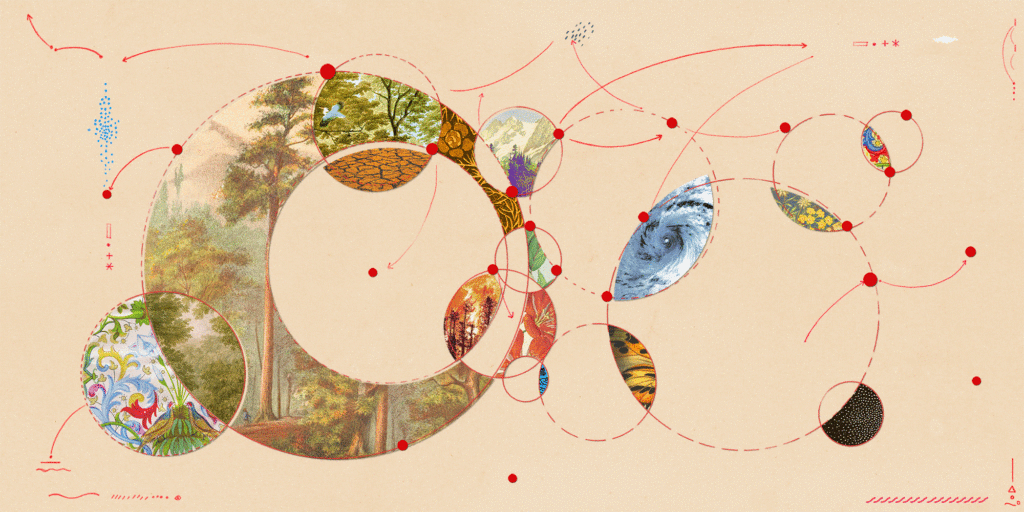
Already enrolled? LOG IN
A Self-Paced Online Course Exploring the Climate Crisis through the Lens of Interconnection

The effects of our rapidly changing climate are already wreaking havoc on the balance of ecosystems, driving countless species to extinction, and threatening our existing ways of life, particularly among the most vulnerable, least resourced populations on Earth.
We all face the challenge of making sense of and responding appropriately to this crisis. In this course you’ll learn from an interdisciplinary faculty of indigenous leaders, scientists, scholars, contemplative teachers and activists as they examine the root causes of the climate crisis and share strategies for healing our relationship with one another and the earth.
Structured in four parts, this course reviews the science behind climate change, explores Earth’s ability to heal and humankind’s ability to change, shows how heartbreak and wonder can catalyze our collective will, and provides actionable steps to effect positive change.
Course topics include:
- understanding the climate crisis as a relationship problem and the importance of the stories we tell about the nature of humanity
- the historical and psychological roots of the crisis and the deeply-embedded belief systems that stand in the way of change
- the role of the mind—and importance of shifting mindsets—as a vital part of the solution
- the science of behavior change
- integral approaches and the promise of “quantum social change”
- strategies for motivating individual action and collective efficacy to advance promising solutions at scale
The course is a complement to A Future We Can Love, a new book by former Mind & Life President Susan Bauer-Wu. The book expands on the Mind & Life conversation between the Dalai Lama and Greta Thunberg to reinforce many of the themes presented in this course.
Registration and Pricing
Flexible Sliding-Scale Registration
$1-108
- I want to help offset the cost of creating this course!
– also available –
Access for All
For those who can’t support this project financially right now, but are inspired to use these ideas and practices in their lives and communities.
Click here to register with Access for All
Curriculum Overview:
The journey to create a sustainable future begins with knowledge. In Lesson 1, you’ll learn about the science of climate change and how climate feedback loops (e.g., melting permafrost and ever-growing forest fires) are magnifying the primary causes of climate change. Speakers identify the root cause of the climate crisis as our profound disconnection from each other and the Earth. Over time, colonialism, racism, materialism, and other cultural forces have contributed to the very values and behaviors that created the crisis. Presenters offer insights to help us rewrite our cultural narrative around the reality of our fundamental interconnection in order to help illuminate the way forward.
Katharine Hayhoe | Climate Science: What’s New?
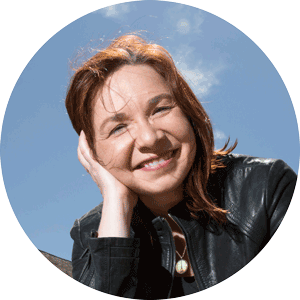
Human emissions of greenhouse gasses now overwhelm the influence of natural drivers on Earth’s climate. How will our energy choices and resulting emissions affect temperature and precipitation, extreme events, sea level rise, and more—over this century and beyond? What are the implications for meeting the targets of the Paris Agreement and avoiding dangerous change? And what about the potential for surprise, as we push the climate system harder and faster than any time in human history? Climate scientist Katharine Hayhoe highlights key results and new science from the Fourth U.S. National Climate Assessment, and lays out how climate change is affecting regions and sectors across the U.S.
Bonnie Waltch, Don Perovich, and Thupten Jinpa | Climate Feedback Loops
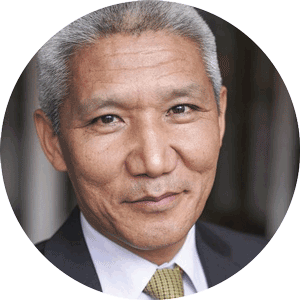
Climate change is drastically and detrimentally changing our world; glaciers are shrinking, sea levels are rising and our fellow beings are struggling to survive. How do we maintain hope in the face of such enormous, seemingly unfathomable adversity? What role do the stories we tell and the compassion in our hearts play as we move into an unsettling future? This panel discussion with Bonnie Waltch, Don Perovich, and Thupten Jinpa—a storyteller, a climate scientist, and a Buddhist scholar—addresses climate feedback loops, the most compelling issue of our times. This session includes a clip from the “Climate Emergency: Feedback Loops” film series. Nischal Neupane, program manager at the Mind & Life Institute, moderates the conversation.
Vandana Shiva | Earth Democracy: Connecting the Rights of Mother Earth and the Well Being of All
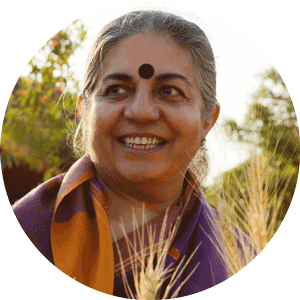
The multiple crises and pandemics we face today are all rooted in a worldview based on the illusions of separation and superiority, which deny interconnectedness and oneness. One million species are threatened with extinction, with 200 going extinct every day. Humanity’s present path is clearly non-sustainable because it is destroying life on Earth. Climate activist and scholar Vandana Shiva shares her ideas on Earth Democracy, a worldview, paradigm, and practice based on the recognition that everything is interconnected. The Earth is living. The Earth has rights. And we as humans have duties to care for the Earth and regenerate her soil, seeds, biodiversity, water, and food systems. Our rights flow like a spring from our duties.
Dekila Chungyalpa | Don’t Look Down: How to Build Bridges with Unlikely Allies
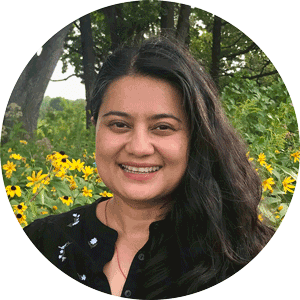
Over 85% of the world subscribes to a faith. Over half of the schools worldwide are run by faith institutions. Collectively, “faiths” are the 3rd largest category of financial investors. And yet, for the most part, they are often not recognized as a stakeholder group by mainstream environmental and climate movements, let alone as a crucially important one that could change the entire game. Climate activist Dekila Chungyalpa shares her insights from working with a diverse group of faith leaders around the world, building faith-led partnerships on climate and environmental efforts in the Amazon, East Africa, the Himalayas, the Mekong region, and the United States. She discusses the science of faith-led environmental and climate solutions, and the art of finding common ground between unlikely allies in order to build the resilience of people, of communities, and of the planet.
Willa Blythe Baker | Body As a Mountain
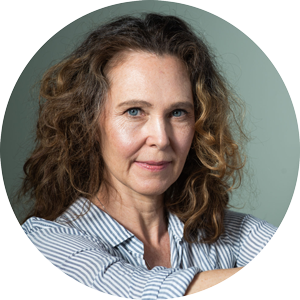
Willa Blythe Baker guides a contemplative practice to help anchor our awareness in a felt sense of the body.
Lesson 2 explores the human capacity to change, and the Earth’s capacity to heal and regenerate. Indigenous scholars introduce the concept of kinship—the “moral bond between people, plants, animals and habitats”—and how effectively addressing the climate crisis means restoring our kinship relations. Indigenous land management practices show how it’s possible for humans to live in right relationship with the natural world. From leading scientists we learn how behavior change happens and the power of sharing positive solutions that inspire hope–and action.
Kyle Whyte | The Timing of Climate Change
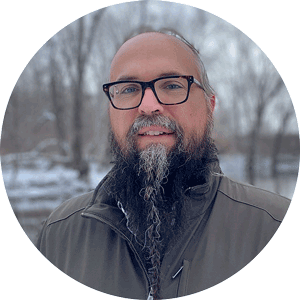
Oftentimes climate change—and its urgency—is narrated through linear time. When narrated like a ticking clock, the sense that swift action is needed obscures responsibilities to others who risk being harmed by solutions to climate change. Environmental justice scholar Kyle Whyte offers four different Indigenous approaches to narrating climate change: “depth time,” “seasonal time,” “kinship time,” and “dystopian time,” showing how each offers an account of responsibility. While philosophical, the Indigenous approaches have implications for climate governance, allyship, policy, and the media.
Lyla June | Indigenous Regenerative Practices for Climate Healing
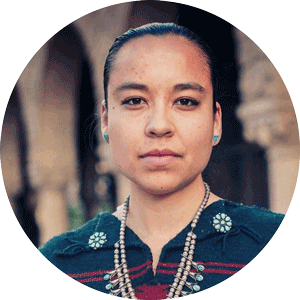
Indigenous peoples have engaged in land management practices on a massive scale for millenia and while only making up 5% of the global population continue to manage over 80% of the biodiversity on Earth. Scholar and activist Lyla June explains how in observing soil cores of fossilized pollen and charcoal we can see how pre-Columbian indigenous peoples transformed landscapes into edible food systems that simultaneously sequestered carbon, augmented biodiversity, and increased ecological connectivity. Such practices were held within an indigenous cosmology and spirituality based on reciprocal relationships with all living things and which viewed food not as an object for consumption but as an exchange of life.
Jonathan Rose | Pathways to Planetary Health
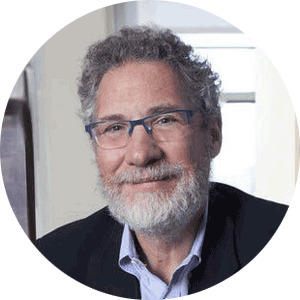
Planetary Health is an emerging field of public health that explores the interdependence of human and planetary health. The depth and breadth of human activity has generated the Anthropocene, a geological age in which human activity has literally altered the earth’s ecological and atmospheric systems. Urban planner and philanthropist Jonathan Rose discusses the Garrison Institute’s Pathways to Planetary Health initiative and asks: what is the ethical responsibility that comes with degenerative interventions? and what are the main pathways of regenerative actions?
Elissa Epel | The Science of Behavior Change
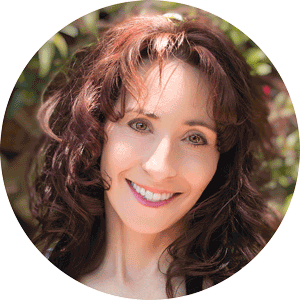
Effective interventions to improve climate related behavior can be informed by the synergy of both psychological principles and contemplative wisdom. Principles that can be applied to climate-related change include promoting salient social norms for sustainability behaviors and schemas toward viewing the climate crisis as a moral issue. Health psychologist Elissa Epel reflects on the importance of the integration of science, spirituality, and social ethics to create greater likelihood for the transformational change that is needed. She also discusses models of research for climate change mitigation, including working with stakeholders from the outset to identify goals to impact structural change.
Christiana Figueres | The Case for Stubborn Optimism
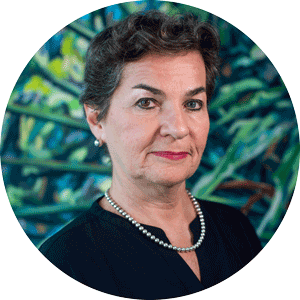
Christiana Figueres is renowned for having delivered the seemingly impossible. During her tenure as Executive Secretary of the United Nations Framework Convention on Climate Change (UNFCCC) from 2010-2016, she brought together national and sub-national governments, corporations, activists, financial institutions, communities of faith, think tanks, and technology providers to jointly deliver the unprecedented, historic Paris Climate Change Agreement. In this interview with former Mind & Life president Susan Bauer-Wu, Christiana shares insights about her work, her stubborn optimism, her grounding in contemplative wisdom, and the motivation behind her persistent drive to make the world a better place for present and future generations.
Kaira Jewel Lingo | Finding, Creating, and Sensing Space
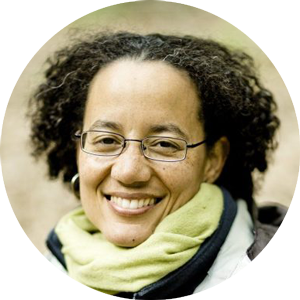
The contemplative practice track continues with Kaira Jewel Lingo, who after directing our awareness back into the body, invites us to expand awareness into the space we’re inhabiting.
The sheer scale and severity of the climate crisis can make people feel powerless. Lesson 3 examines the role of heartbreak and wonder in motivating climate action. Species loss and climate emergencies are cause for moral outrage—as well as compassion—for those lives most impacted by rising temperatures. Solace and a way forward can be found in the raw beauty of nature. Scientists have found that wonder increases altruism, helping humans shift their focus from the self to responsibility for others and the Earth.
Roshi Joan Halifax | Integrity and Moral Suffering in Relation to the Climate Catastrophe and Health
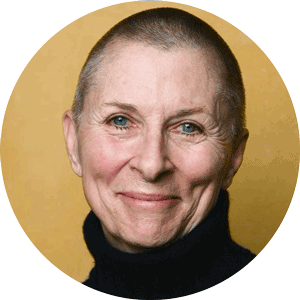
Buddhist teacher and anthropologist Roshi Joan Halifax shares her insights on the psychosocial effects of climate change and the role of moral suffering and integrity related to the climate crisis. Specifically, she explores four valences of moral suffering as well as deep health issues related to our climate catastrophe. She also addresses the role of integrity in shifting out of behaviors of harm to views and behaviors of compassion and care.
Willa Blythe Baker | Natural Breath

Willa Blythe Baker guides the listener into a spacious meditation, exploring the breath, body, thoughts, and mind as natural.
Matthieu Ricard | Altruism & Wonderment
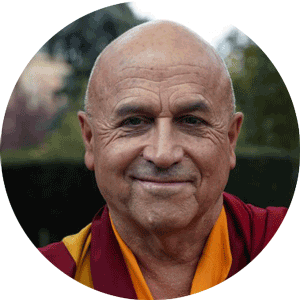
One of the main challenges of the 21st century is to reconcile short-term imperatives—providing for one’s family’s needs, surviving the fluctuations of the economy—with the search for life satisfaction in the medium term, and the preservation of the environment for the sake of future generations in the long term. Buddhist teacher Matthieu Ricard shares his perspectives on altruism and awe as doorways to skillfully and collectively navigate the climate crisis.
Bobbi Patterson | Placing Ourselves with/in the Planet
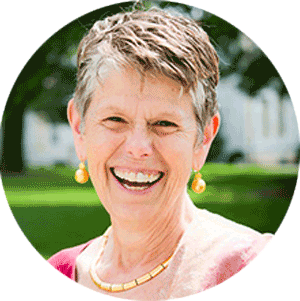
How do we place ourselves in the climate crisis? Are we at home? Do we search for roots denied us or taken away? Can we quiet our busy minds and bodies to receive more than visitors do; to hear the plants and trees, to sense one another, to protect and love as do inhabitants? How can poetry, stories, movement, and art reveal and invite us to practice re-inhabitation with all beings: seeing/knowing/feeling/spirit-learning? Religious studies scholar Bobbi Patterson engages these questions by exploring the territories of places as descriptive memories of times and seasons, courageous resistance and unjust death, and practiced habitation.
Kaira Jewel Lingo | Cultivating Love and Kindness

Kaira Jewel Lingo brings our attention to the “most wondrous process of the breath” and then leads us to cultivate a state of love and kindness by reflecting on people, animals, and places that have nurtured us.
How can individuals make a difference? What are the pathways through which our actions can contribute to meaningful change? Speakers in Lesson 4 underscore the importance of shifting mindsets and embracing universal values like equity, dignity, and compassion. An integral approach to climate change works on multiple levels: consciousness, behavior, culture, and systems. The concept of ‘quantum social change’ is introduced through which individuals influence those closest to them, unleashing an expanding circle of care. A good place to start is by mapping your sphere of influence and engaging in an ongoing conversation around what an “Age of Enough” might look like.
Christine Wamsler | Inner and Outer Change for Climate
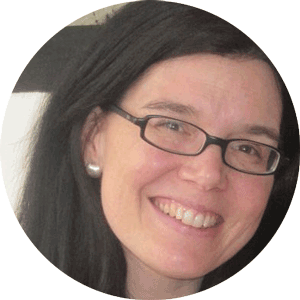
Christine Wamsler describes current trends, theories, and research at the intersection of the mind and climate, highlighting the importance of reconnecting with ourselves, to each other, and to the world to foster resilience and more appropriate responses to climate change.
Ed Maibach | How We Talk About Climate Matters
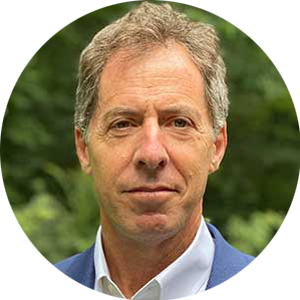
Ed Maibach describes the attributes of people who are taking climate advocacy actions, and will discuss the importance of and how to communicate about climate change in ways that promote climate action.
Karen O’Brien | You Matter More Than You Think
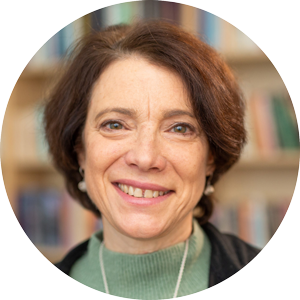
Karen O’Brien will talk about our individual and collective capacities to generate and scale transformations to sustainability. Focusing on the practical, political, and personal spheres of transformation, she will describe how we can each contribute to new patterns and relationships that shift systems and cultures. This fractal approach to scaling change links who we are and what we do, and highlights why beliefs, values, worldviews, and paradigms matter when it comes to sustainability. She will talk about some of the problems with “top- down/bottom-up,” and “local/global” dichotomies, then suggest that quantum social science offers another way of approaching scale. In short, she will emphasize the metaphorical and meaningful significance of quantum social change, including why you matter more than you think when it comes to scaling social change to support an equitable and thriving world.
Bruce Barrett | Mindfulness, Co-benefits, and Behavioral Eco-Wellness
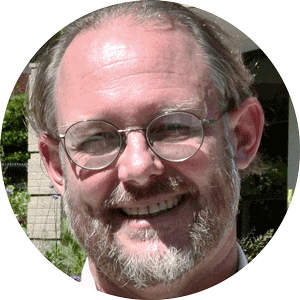
The field of behavioral eco-wellness investigates the choices, behaviors, and habits that contribute to both personal health and environmental sustainability. Eco-wellness can be defined as “living life to maximize health, happiness, and environmental sustainability.” Fortunately, many of the same behaviors that bring mental and physical health also support ecological health (co-benefits). Evidence suggests that enhancing awareness of physical sensations, emotions, thoughts, and behaviors through mindfulness training can lead to greater health and happiness, and perhaps to lifestyles having fewer negative environmental impacts. Physician and anthropologist Bruce Barrett discusses the Mindful Climate Action program at the University of Wisconsin and the results and implications of two pilot studies of this program.
Kaira Jewel Lingo and Willa Blythe Baker | Gratitude for the Sake of All Beings
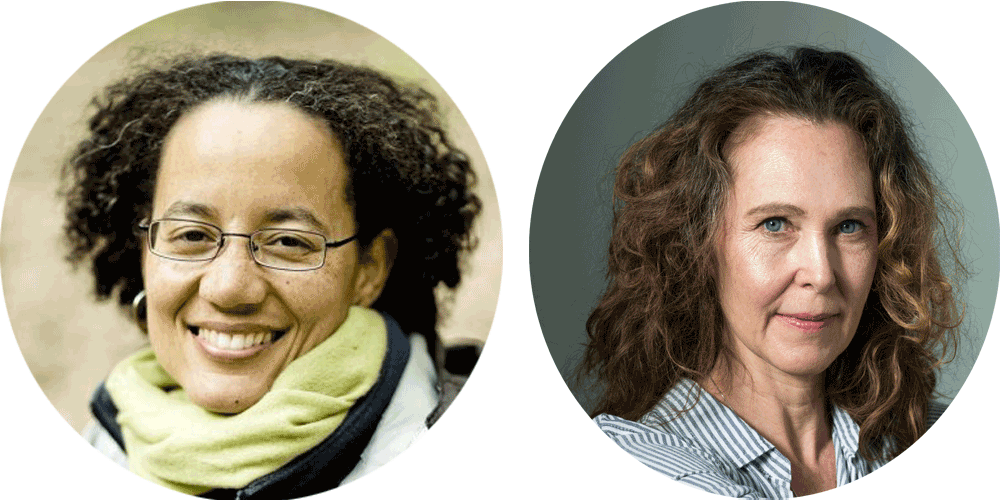
The course closes with a final contemplative practice co-led by Kaira Jewel Lingo and Willa Blythe Baker who guide participants to cultivate a feeling of gratitude.
What people are saying:
“An incredibly eye-opening experience.”
“I now understand in my mind what I already knew in my heart; that this moment in time is a spiritual reckoning with our habitat, and that science alone will not fix the problem.”
“Where I previously felt lost, overwhelmed, and even alone…
My path is all the brighter.”
The course is now open and all content is instantly available upon registration. It is self-paced and content will be available to registrants indefinitely.
Questions?
For more information, please contact courses@mindandlife.org.

